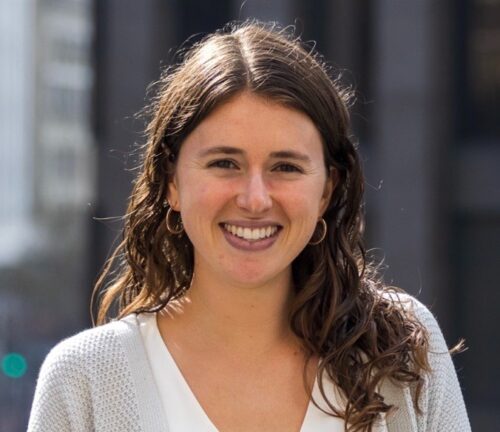Sierra Spencer joined E3 in 2019. Her work focuses on analyzing opportunities to leverage distributed energy resources and supporting clients’ transportation electrification and renewables integration efforts. Sierra’s work often incorporates an evaluation of distributed energy resource adoption and energy-related costs through the lens of equity and affordability. Sierra has also worked on long-term resource planning with an emphasis on meeting emission reductions goals while maintaining system reliability.
Sierra credits her study abroad experiences in South Africa, New Zealand, and Australia with sparking her interest in energy and the environment. As a student, she conducted yearlong research studies on managed charging for electric vehicles and the use of sustainable biofuels for heating.
Consulting at E3 allows Sierra the opportunity to develop creative solutions for some of society’s most pressing challenges for clients who are motivated to implement them. She is thrilled to contribute to E3’s mission and cutting-edge work after encountering E3 throughout her education.
Sierra, a former college athlete, stays active by running, swimming, and paddleboarding. She’s also an avid hiker and traveler.
Education: MS, civil and environmental engineering, University of California, Berkeley; BS, engineering and BA, environmental studies, Swarthmore College
FULL E3 TEAM



